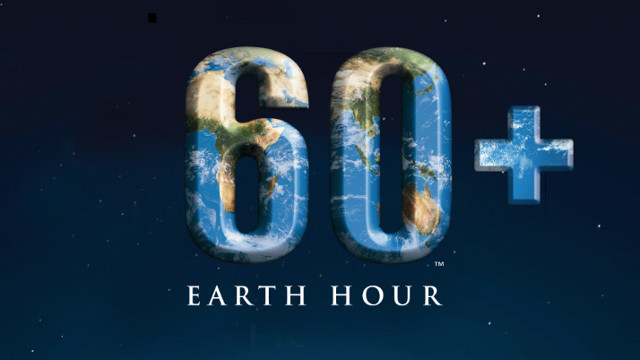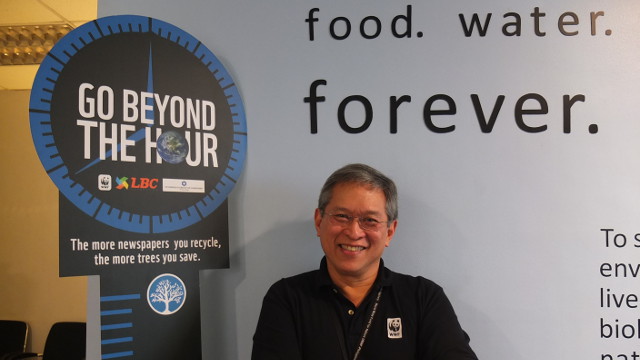SUMMARY
This is AI generated summarization, which may have errors. For context, always refer to the full article.
MANILA, Philippines – “Earth Hour is a colossal waste of time and energy,” declares the title of a Slate.com article by Bjørn Lomborg.
His sentiments echo that of many others who have not been swayed by the rousing call-to-arms of the Earth Hour movement, a global light’s out event taking place in over 167 countries on Saturday, March 23, from 8:30 PM to 9:30 PM.
For more on Earth Hour, read Earth Hour’s Andy Ridley dares you.
Rappler talked to World Wide Fund for Nature (WWF) Philippines CEO Lory Tan to get his thoughts on the charges that have been made against Earth Hour.
Is Earth Hour still worth believing in? Lory Tan thinks so and here’s why.
‘Tiny decrease in electric consumption won’t save the world’
Lomborg: “Hypothetically, switching off the lights for an hour would cut CO2 emissions from power plants around the world. But, even if everyone in the entire world cut all residential lighting, and this translated entirely into CO2 reduction, it would be the equivalent of China pausing its CO2 emissions for less than four minutes.”
Lory Tan: The statement of Mr Lomborg that asks how much do you really save, that’s not the point. It’s never been the number of megawatts. It has never been the number of light bulbs.
What it is is a reminder that we have not licked climate change. It’s as simple as that. The problem is still there, it’s staring us in the face. It’s growing, it’s accelerating.
One way to deal with climate change is adaptation, which is our response. In other words, tatamaan ka na kaya paghandaan mo na (it’s going to hit you so you have to prepare for it).
Yesterday, I was in Manila Water and someone asked me, “What can I do?” And I told him, “Start with your family, then with your home, then with your community. Make a difference where you live, in the circle that matters the most to you. Start with your own heart. That’s what should drive your adaptation.”
A 10-year-old student asked me the same question and I said, “Start with your room. Maybe you’re not turning off your lights when you leave it. Maybe you leave your laptop on the whole time.”
Increases electric consumption
Lomborg: “Earth Hour will cause emissions to increase… As the United Kingdom’s National Grid operators have found, a small decline in electricity consumption does not translate into less energy being pumped into the grid, and therefore will not reduce emissions.
“Moreover, during Earth Hour, any significant drop in electricity demand will entail a reduction in CO2 emissions during the hour, but it will be offset by the surge from firing up coal or gas stations to restore electricity supplies afterward.”
Lory: That’s false. Lomborg is not an engineer because you don’t turn off the power plants when you turn off the lights. This is no surge. After a brown out, when the power plant goes off, when the power comes on, there is usually a surge in the first 5 minutes.
But in Earth Hour, the power plants don’t turn off. There is no surge.
The objective of Earth Hour is to build a mass constituency. The easiest thing would be to turn off the power plants but you wouldn’t have mass constituency. Then when you turn it off, it takes hours to turn back on because you have to let it cool off then warm up.

Small acts vs big acts
Lomborg: “Earth Hour teaches us that tackling global warming is easy. Yet, by switching off the lights, all we are doing is making it harder to see.”
Lory: All great actions, whether public or private, are founded on small actions, in fact, founded on individuals. All governments are supported by voters. All companies are supported by their market and their consumers. And therefore, you have to do both.
But should it start on top and force a change on a mass base? Or should it start below and force a change that will lead to those bigger actions? I think it should do both but I believe that the way forward today is to start with the small actions and induce aggregation.
Why? As we were growing up, which were the things we ended up doing: the things that were forced on us or the things we chose to do? Eventually, the stuff that was forced on us, we repudiated. If a government was simply to impose a new law—look at the Clean Air Act, look at the Clean Water Act, wala (nothing).
I think it has to happen simultaneously from above and below, but there has to be a bias for local decision-making because it is the decisions that people make collectively and on their own that last.
WWF has actually been branded by other NGOs as the big business NGO, that we’re always dealing with big actions. We’re very comfortable with big actions.
Feel-good environmentalism?
Lomborg: “Its vain symbolism reveals exactly what is wrong with today’s feel-good environmentalism.”
It sounds like there is something wrong with feeling good. And I don’t think there is. I think it’s important to celebrate the most minor success because then, it becomes a step, it becomes reinforcement.
I generally don’t use fear or depression or negative emotion as a driver of my arguments. To move people forward, you have to motivate them. You have to look for opportunities by which people can make minor successes and aggregate them.
Some people ask me, “Has Earth Hour made a difference in the Philippines?”
Okay, let’s forget about the number of megawatts saved or not saved. Five years ago, did you see LED bulbs for sale in Ace Hardware? Today they are. Did all the malls have segregated trash cans? Today they do. Reusable shopping bags, waterless toilets—five years ago, they didn’t have [that]. Today they do. Has it changed things? Yes it has.
“Electricity is good not bad”
Lomborg: “Electricity has given humanity huge benefits. Almost 3 billion people still burn dung, twigs, and other traditional fuels indoors to cook and keep warm, generating noxious fumes that kill an estimated 2 million people each year, mostly women and children… In the developed world today, electric stoves and heaters have banished indoor air pollution.”
Lory: Electricity, especially in Asia-Pacific, comes by and large from coal. China has built 500 new coal plants. What is he talking about when he says electricity is saving the world?
Electricity coming from fossil fuels over the 130 years of the petroleum age has taken us to the brink of planetary disaster. The burning of fossil fuels for electricity causes greenhouse gas which causes climate change.
Who do you believe? What are your thoughts on Earth Hour? Share them on our Earth Hour debate page and be part of the conversation. – Rappler.com
Add a comment
How does this make you feel?

There are no comments yet. Add your comment to start the conversation.